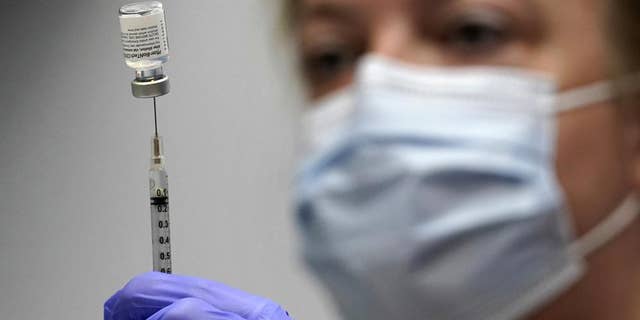The rapid spread of omicron throughout the United States and the rest of the world is likely due to the COVID-19 variant’s ability to evade immunity offered by vaccines, according to a Danish study released last week.
The study, which examined 12,000 households, found that omicron is 2.7-3.7 times more infectious than delta among vaccinated individuals.
University of Copenhagen researchers analyzed the secondary attack rate for both omicron and delta, which refers to the likelihood that the virus would infect someone else.
For the unvaccinated, omicron had only a 1.17 times higher secondary infection rate than delta. But for the fully vaccinated, omicron caused 2.61 times more secondary infections than delta, and for the booster-vaccinated, omicron caused 3.66 times more secondary infections than delta.
In other words, unvaccinated individuals were just as vulnerable to omicron as they were to delta, but vaccinated individuals were much more likely to be infected by omicron than they were by delta.
“Our findings confirm that the rapid spread of the Omicron [variant of concern] primarily can be ascribed to the immune evasiveness rather than an inherent increase in the basic transmissibility,” the researchers wrote in the study, which has not been peer-reviewed.
A worker from USA Health prepares to vaccinate a person for COVID-19 during a drive-up clinic in Mobile, Ala., on Thursday, Aug. 12, 2021. (AP Photo/Jay Reeves)
Vaccine effectiveness against symptoms was reduced to around 40% for the fully vaccinated and 80% against severe illness for omicron. Booster shots increased those numbers to 86% and 98% respectively.
FAUCI TEASES NEW TESTING RECOMMENDATION DESPITE SHORTAGES
Omicron is similarly effective at evading immunity offered by prior infection, according to a study from the Imperial College London COVID-19 response team.
The new variant was 5.41 times more likely to reinfect someone who has some level of immunity than delta was, the researchers wrote.

A man is tested for COVID-19, at a walk-up testing site run by Nomi Health, Tuesday, Dec. 28, 2021, in downtown Miami. (AP Photo/Rebecca Blackwell)
While omicron may more easily evade immunity, it’s also been associated with milder disease, according to multiple studies.
The researchers at Imperial College London found that individuals infected with omicron are 40% less likely to spend a night or more in the hospital.
Researchers at the LKS Faculty of Medicine at The University of Hong Kong found that omicron “infection in the lung is significantly lower than the original SARS-CoV-2, which may be an indicator of lower disease severity.”
COLLEGE STUDENTS FACE UNCERTAINTY AS SCHOOLS GO REMOTE, DELAY RETURN TO CAMPUS
Dr. Rochelle Walensky, the director of the CDC, said last week that “the disease is mild” in almost all the cases seen so far in the United States.
“What we generally know is the more mutations a variant has, the higher level you need your immunity to be,” Walensky told the Associated Press. “We want to make sure we bolster everybody’s immunity.

Pharmacy technician Hollie Maloney loads a syringe with Pfizer’s COVID-19 vaccine at the Portland Expo in Portland, Maine.
((AP Photo/Robert F. Bukaty, File))
CLICK HERE TO GET THE FOX NEWS APP
Omicron was responsible for 58.6% of all new cases in the United States in the week that ended Dec. 25, according to the CDC.
The 7-day average for new cases in the United States is at a record-high, standing at 316,277 new cases on Dec. 29.